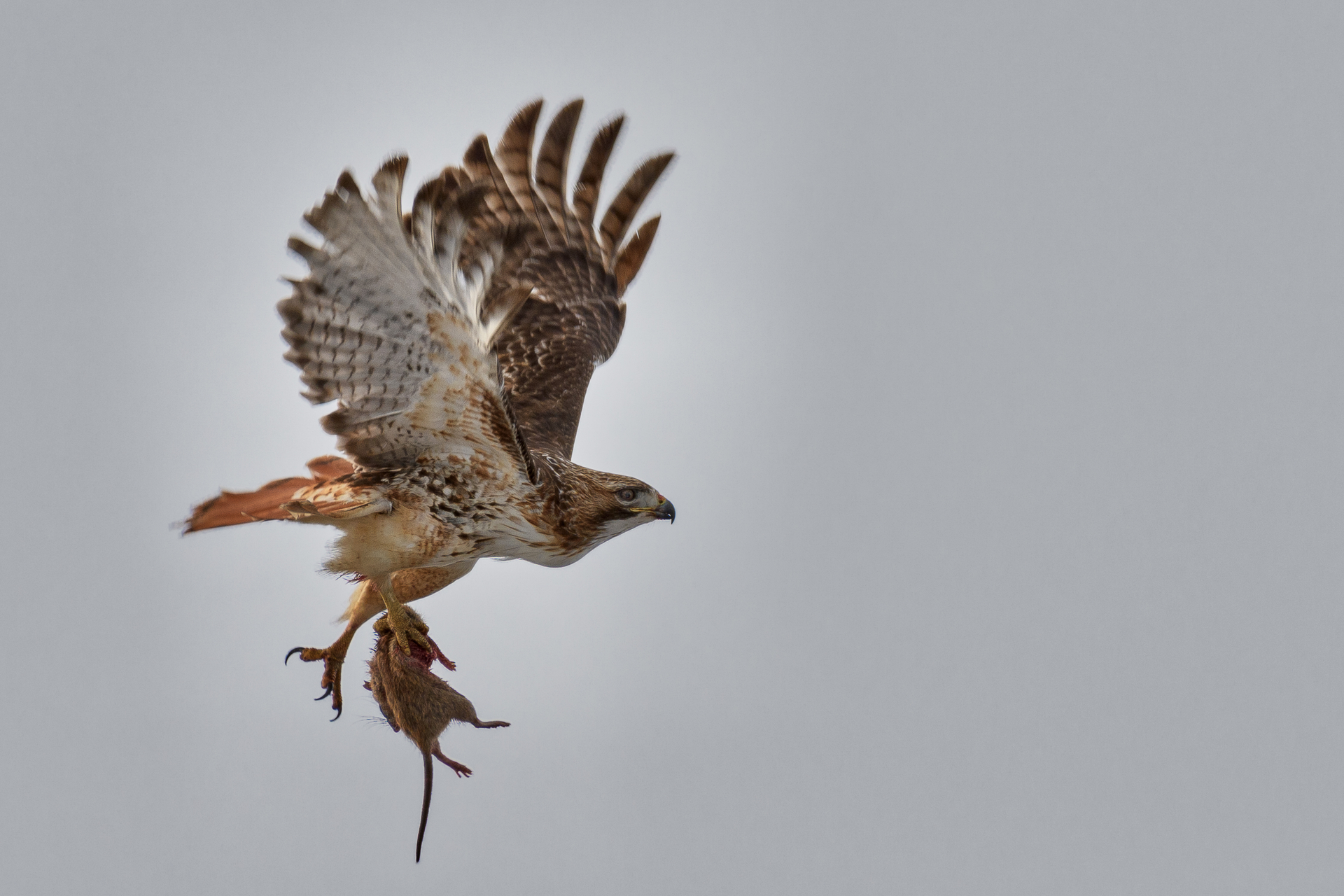The statewide movement to rescue raptors and other wildlife from deadly rat poisons took three major steps forward this month. Rat poisons—particularly second-generation anticoagulant rodenticides (SGARs)—are sickening and killing hundreds of owls, eagles, hawks, and other predators every year. Recent developments bring us closer to removing these toxins from Massachusetts’ environment.
Fighting Rat Poison in Lexington
Marci Cemeska and several other advocates launched Save Lexington Wildlife to protect local wildlife from the deadly impacts of rodenticide poisoning. After recruiting a large group of other passionate wildlife advocates, Save Lexington Wildlife introduced a resolution to reduce the use of rodent poisons to Lexington Town Meeting.
This resolution, Article 40, encourages the Town of Lexington to adopt an integrated pest management policy, which would rely on strategies like removing food sources, blocking exit and entrance routes, and trapping to control rodents, rather than poisons. Crucially, it prohibits the use of SGARs on town-owned property. In addition, this resolution provides for educating the public about how rodenticides can harm human health and the environment.
On April 24, Lexington’s Town Meeting voted nearly unanimously to approve Article 40. “The passage of Article 40 will positively impact wildlife,” said Cemeska. “The town and its residents will be better educated about the dangers of these rodenticides and will be more knowledgeable about choosing non-anticoagulant alternatives.”
This resolution is just the start for Save Lexington Wildlife. In the months ahead, volunteers will collaborate with the town to update policy documents on rat control; help educate town employees, committees, and groups; and support bills at the state house that would place tighter restrictions on the use of rat poisons.
Another Big Step Towards Banning SGARs in Newbury
In January, at the urging of residents and volunteers with Save Newbury Wildlife, the Newbury Select Board took a first step towards protecting wildlife from rat poisons by banning their use on all town-owned property. Then, on April 23, Save Newbury Wildlife won another victory when the Select Board took further action: filing a home-rule petition to ban the use of SGARs on all Newbury land, public and private, with exceptions for emergencies.
Since pesticides are regulated at the state level in Massachusetts, this ban will not be enacted until it is approved by the state legislature. That’s why Newbury was forced to file a “home-rule” petition—the Town is asking the state government for permission to regulate SGARs more strictly than the state.
In the long-term, Save Newbury Wildlife hopes that the momentum to ban SGARs will spread. “Our hope is that more towns will join us, and the state legislature will have to take action and ban these poisons statewide,” said Carolyn Casey, co-founder of Save Newbury Wildlife. “Wildlife does not pay attention to town lines.”
Harvard Animal Law and Policy Clinic Increases Pressure to Regulate SGARs
On May 13, lawyers from the Harvard Animal Law and Policy Clinic representing a group of wildlife rehabilitators and advocates petitioned the Massachusetts Department of Agriculture (MDAR) to halt the use of anticoagulant rodenticides and investigate how these poisons impact raptors and other wildlife.
The wildlife rehabilitators represented in this petition are on the front lines of the fight to protect raptors from rat poison. All of them have rescued hundreds of animals suffering from rodenticide poisoning, and either nursed them back to health or watched them pass away from blood loss. The first-hand evidence they present in their petition makes a compelling case that SGARs and other anticoagulant rodenticides present a danger to raptors.
Governor Maura Healey has signed an Executive Order directing state agencies to set official biodiversity goals for Massachusetts, so we’re optimistic that MDAR will seriously investigate this threat to wildlife.
Towards a Massachusetts Safe for Eagles, Owls, and Hawks
These developments are major steps in the campaign to protect raptors and other wildlife from rat poisons. But to allow raptors—and especially rare ones like Bald Eagles—to thrive across Massachusetts, the use of SGARs will have to be curtailed in all corners of the state.
To achieve that vision, Mass Audubon is supporting and training local advocates to organize campaigns to reduce rodenticide use in communities across Massachusetts. We hope you’ll join us.
Stay Connected with Policy and Advocacy
Learn about opportunities to advocate for our transformative policy agenda



